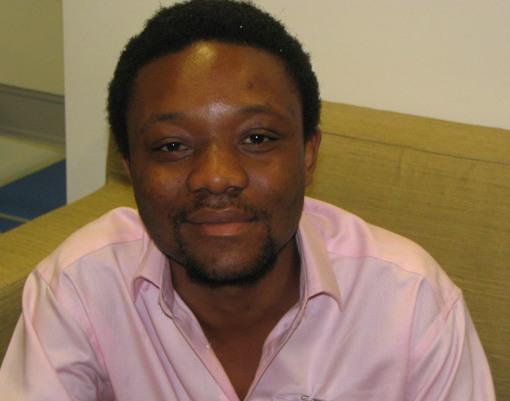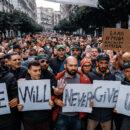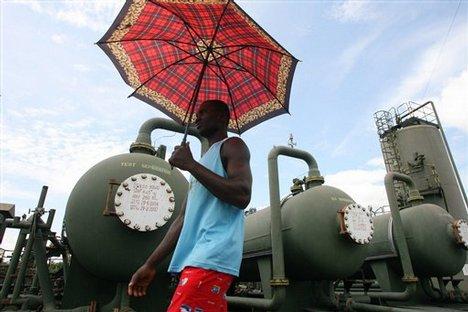Faith and Development in Africa: A new perspective on Diaspora Engagement? – By Dele Meiji Fatunla

 The importance of faith and religious observance amongst African and African diaspora communities was the impetus for a conference held last week by “˜Africa-UK’ – a diaspora engagement project aimed at increasing the impact of the UK’s African Diaspora on policy decisions made on development.
The importance of faith and religious observance amongst African and African diaspora communities was the impetus for a conference held last week by “˜Africa-UK’ – a diaspora engagement project aimed at increasing the impact of the UK’s African Diaspora on policy decisions made on development.
The conference focused on the role Faith Based Organisations play in the development agenda and activities in Africa. A range of sessions tackled issues including the limits and potentials of FBOs, and the funding models and opportunities of engagement, as well as potential for partnerships between faith-based and secular organisations.
Opening the conference, Richard May, Deputy Director of the Royal African Society, noted that “Faith groups play an important role in development in Africa….religion is an extremely vital and potent force in Africa and there is no doubt that Faith groups and organisations have made a massive contribution to development in Africa, from a whole range of different areas, from poverty eradication to the provision of health services, to the provision of education and literature to the provision of water and sanitation and many other things…it is often the faith groups that remain on the ground in times of trouble, in times of conflict, and continue to provide support and help to their communities when international NGOs have withdrawn because of the security situation. I think it’s these strengths, the strength of their community networks and attachments, the networks they bring, along with shared values of forgiving, compassion and equality, and also the constructive role that faith groups play in social and national cohesion that makes faith groups and faith organisations so important in driving development”.
This view waslargely echoed by the speakers in the first session of the conference, which asked “Is Faith a Driver of Development?
Dr. William Ackah, Co-Covenor of the “˜Transatlantic Roundtable on Religion and Race’ touched on the role religions have and can play in bridging the divides between the older and newer African diasporas. Mohammed Zaman, Campaigns Officer for MADE in Europe, argued for the positive impact faith-based organisations can make in development agendas because of this bridging potential, and their ability to adapt and be responsive to their communities. He cited the evolution of many FBOs responses to the HIV/AIDs crisis, saying “initially many of the FBOs in Africa, were severely criticised for having a delayed response to it, for not really understanding, the implications of the rising rates of HIV and AIDs, and having a moralistic and judgemental stance towards people with HIV and AIDs, which then produced and perpetuated that stigma and shame associated with it; but now we see that faith based organisations and faith communities have changed that negative attitude towards these people, and now they’re part of the solution. They are now increasingly establishing activities and programmes to combat this”.
Dr. Titi Banjoko said the scale of FBOs activities in Africa allows them to make an impact, and that even political leaders understand the clout and ability of FBOs to get messages out and initiate change; adding that increasingly in Africa, it’s not governments, but FBOs that provide the healthcare and palliative care in African communities. In the diaspora, she added, that her experience of trying to reach out to diaspora communities, that the faith based network has been the best way to reach these audiences.
Dionne Gravesande, Head of Church Relations at Christian Aid, emphasised the social justice aspect of FBOs’ activities, saying it’s very often “it is both faith communities and civil communities that are outraged by injustice”.
One audience member highlighted the scepticism that many Africans in the diaspora feel towards FBOs given the historical role many of them played during the colonial era, and their denigration of traditional beliefs; others wanted to know who holds FBO organisations to account given their enormous resources and impact. Dr. William Ackah responding said that indeed the question of accountability and what kind of development FBOs create is a valid one.
Dr. Mohammad Zaman, in a view echoed by other panellists, said that in the case that FBOs are local, they can be held to account more easily by their communities, but this was much harder with international FBOs, and equally, secular organisations. Dr. Banjoko, on the issue of FBOs and accountability in Africa, said that FBOs shouldn’t be seen in isolation, but as part of the social and political fabric of the continent, where there remains a challenge of accountability, but added, “maybe we should expect more from FBOs because they claim to hold certain values”.
Dele Meiji Fatunla is editor of Diaspora Debate.
This article was first published on the Africa-UK website.






